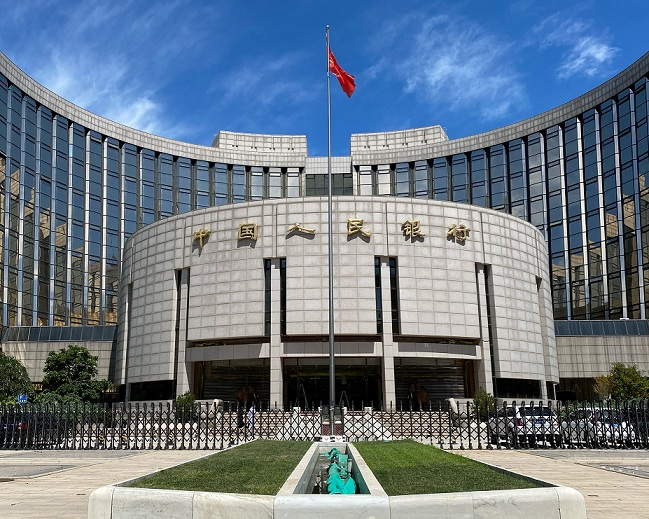BEIJING, Oct. 25 (Xinhua) -- Overseas institutional investors increased their Renminbi-denominated bond holdings on China's interbank bond market in September, reported Shanghai Securities News citing data released by the Shanghai Head Office of the People's Bank of China on Tuesday.
By the end of September, overseas institutions held in total 3.19 trillion yuan of RMB-denominated bonds on China's interbank bond market, accounting for 2.4 percent of the comparable aggregate and marking their first holding increase since June this year.
In September, three more overseas institutions entered the interbank bond market and by the end of September, there were altogether 1,110 overseas institutions that traded bonds on the interbank bond market.
Since the beginning of this year, demands for RMB-denominated bonds by overseas institutional investors fluctuated due to effects of multiple factors such as the relatively wide spread between yields of bonds of the same terms in China and the U.S. and the weakened risk appetite of investors.
But given the expected ending of monetary policy tightening in major developed economies, overseas demands for RMB-denominated bonds, which stand as an important alternative for global investors to reduce risks thanks to their investment value, are likely to recover, according to industry experts.
Recently, the improved cross-border capital flows for China have signaled the potential trend. In the past days of October, cross-border capital inflows resulted in net inflows alongside the easing short-term disturbance from factors such as seasonal ones.
Generally, the fundamental situations of China's foreign exchange market featuring stable expectations and rational trading extended, said Wang Chunying, deputy head and spokesperson with the State Administration of Foreign Exchange when talking about the third-quarter foreign exchange receipts and payments previously.
As Wang held, China's foreign exchange market turned much more resilient in adapting to changes in external environment and the short-term fluctuations in cross-border capital flows had not and would not change the balanced long-term trend.
Alongside the gradual functioning of macro-economic policies in China, positive factors to drive up high-quality economic development were likely to continue to accumulate and better support the foreign exchange market, which would in turn attract more capital influx, Wang noted. (Edited by Duan Jing with Xinhua Silk Road, duanjing@xinhua.org)




 A single purchase
A single purchase









